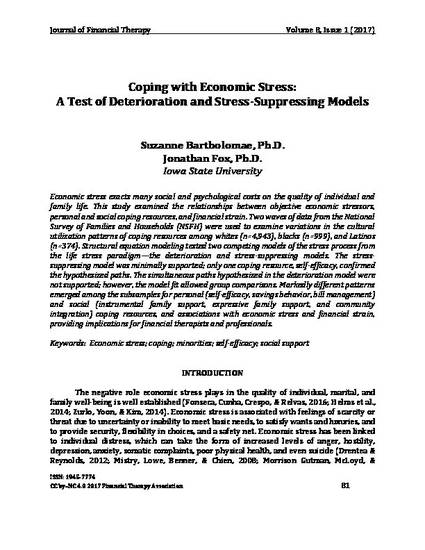
- Economic stress,
- coping,
- minorities,
- self-efficacy,
- social support
Economic stress exacts many social and psychological costs on the quality of individual and family life. This study examined the relationships between objective economic stressors, personal and social coping resources, and financial strain. Two waves of data from the National Survey of Families and Households (NSFH) were used to examine variations in the cultural utilization patterns of coping resources among whites (n=4,943), blacks (n=999), and Latinos (n=374). Structural equation modeling tested two competing models of the stress process from the life stress paradigm—the deterioration and stress-suppressing models. The stress-suppressing model was minimally supported; only one coping resource, self-efficacy, confirmed the hypothesized paths. The simultaneous paths hypothesized in the deterioration model were not supported; however, the model fit allowed group comparisons. Markedly different patterns emerged among the subsamples for personal (self-efficacy, savings behavior, bill management) and social (instrumental family support, expressive family support, and community integration) coping resources, and associations with economic stress and financial strain, providing implications for financial therapists and professionals.
Available at: http://works.bepress.com/suzanne-bartholomae/3/
